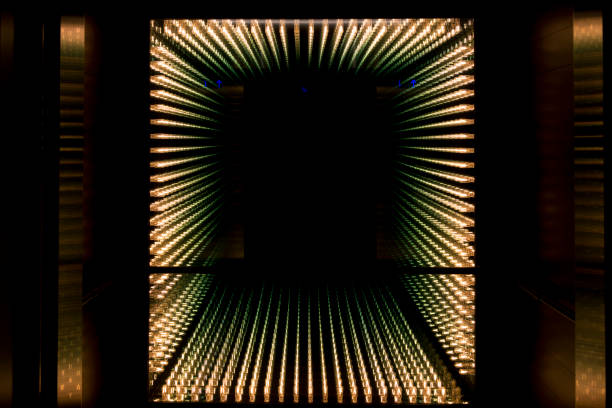The economic way of thinking begins with understanding that human choice is all walks of life is always exercised against a background of constraints.
The reality of choice within constraints implies that we face trade-offs in making decisions.
Peter Boettke, Living Economics, pg. 22
F. A. Hayek argues that there are two kinds of individualism, one which embraces the "constrained vision" and the other which embraces the "unconstrained vision." Those who believe humans are constrained believe we are naturally social and that there are evolved rules that restrict how humans can act and interact with each other. Those who believe human are unconstrained believe human beings are infinitely malleable, that we can be socially constructed into anything. The former Hayek identifies with the "tragic sense of life." The poet Frederick Turner identifies it with the development of a “culture of hope.” The latter is embraced by the avant-garde of the 20th and 21st centuries.
In poetry, the constrained vision is clearly accepted by the formalists. Of course, I have already argued elsewhere that all poetry—including free verse poetry—is built upon constraints, but formalist poets make those constraints more consciously-chosen. What we could call “unconstrained poets” would be those who write in free verse, but also in avant-garde styles such as dadaism, surrealis, and L=A=N=G=U=A=G=E poetry, among others.
Free verse poets tend to believe constraints restrict their freedom. Free verse poetry and many of the experiments of literary modernism and postmodernism were attempts at shedding constraints—and were quite often attempts to deny the natural existence and validity of constraints. In their ideal of “automatic writing,” surrealism attempted to deny the validity of making a decision—or at least, conscious decisions—and therefore attempted to create an "act" without decision, direction/goal, or structure. The surrealist artists all considered themselves to be the artistic expression of Marxism, and Marxism is certainly a version of the unconstrained vision of man.
Formalist poets understand that constraints are not necessarily restricting, but rather that they are a necessary condition for freedom. The world is full of constraints, and interesting rules/constraints can create new possibilities you may not have thought of had you been writing a free verse poem. In a certain sense, then a sonnet thus makes one more entrepreneurial, because you have to be alert to new possibilities, because you have constraints in what you can say next (or, in revision, perhaps what you said before). In formalist poetry there are a number of constraints that can force you to make choices—many more choices than you would have to make in free verse, for example.
Of course, not all constraints are the same. There are natural and imposed constraints. There are internally-imposed and externally-imposed constraints. There are predictable and unpredictable constraints. Formalist poetry embraces a combination of natural (rhythms and rhymes) and imposed (this or that particular rhyme scheme or rhythm), internally imposed (by our choices) and externally imposed (by our traditions, within which we necessarily work), and predictable (in a heroic couplet the last word of the second line necessarily rhymes with the first) and unpredictable (having to rhyme may send the writer—and, subsequently, the reader—into a different direction than (s)he first thought the poem was going). But note that the formalist poet is making use of both simultaneously and is not using one at the expense of the other.
Many of the modernist and postmodernist avant-garde writers insisted that they were rejecting the artificiality of formalism and embracing a more "natural" kind of poetry. The surrealists thought they were being natural, unpredictable, and internal, for example. There was an assumption that nature was chaotic/unpredictable—and that man imposed (and should impose) order from the outside. Self-organization theory helps us to see that a kind of predictable-unpredictable, internal-external natural order can exist, that no external orderer is necessary in nature, or in society. Thus, a good formalist poem is much more like a self-organizing natural system than is a surrealist poem. Neither is more natural than the other, but one could perhaps argue that the former embraces more aspects of reality than does the latter.
On the other hand, one can go in the other direction and have externally imposed, predictable art—but this is propaganda and/or is a product of censorship. In the visual arts, Futurism tried to embrace the completely "imposed"/non-natural. Language, being a spontaneous order itself, always necessarily embodies both elements, making a purely "unnatural" poetry all but impossible—except perhaps in various Dadaist experiments.
This suggests, then, that the kinds of poetry flourishing at a given time are likely to reflect the way the poets understand the world—as being naturally constrained or naturally unconstrained. Does this mean there are more formalist poets with the tragic view of life? Does this mean that free verse poets are more optimistic about humans being able to design the world? Perhaps. One would expect to see this in the world views they express in their art.
As we learn more and more about the world, we learn that the world is in fact full of constraints, that there is a power in limits, and that these elements of the world are what have led to ever-greater complexity and order in the cosmos. Does this mean the formalist poets are the one who “got it right”? Hardly. There are plenty of areas in our cultures and societies in which we can and do consciously structure our environments—not the least of which being businesses, legislation, and our organizations. And these are necessary. The free verse poets have their place, and the formalists have their place. Each contributes, and each finds their own kinds of freedoms.
Each poet must find their voice, and each, I think, can only find their voice by experimenting across the different forms and various versions of free verse and avant-garde poetry. What you end up choosing, though, might say a great deal more about your world view than perhaps you realized.


